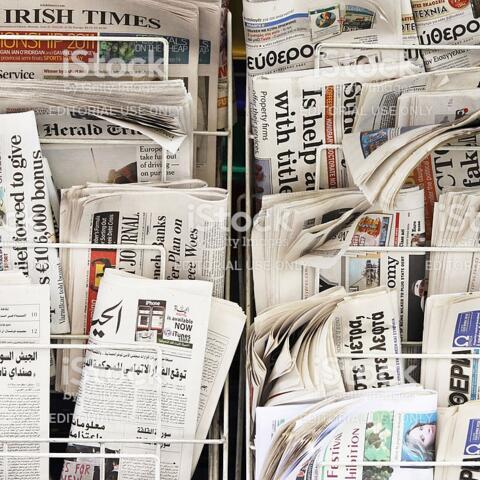This week's International Media looks at how the media coverage of the US campaign failed to foresee Donald Trump's victory and asks if this should be a wake-up call to change the way journalists report, inform and deliver the news.

During the campaign, Trump was not, to say the least,popular with America's mainstream media. More than 200 newspapers supported Hillary Clinton, while Trump received the backing of fewer than 20.
Today journalists are asking themselves what went wrong.
Some argue that the very nature of journalism has changed so much, with the growth of online media, which brings an unprecedented need to attract clicks and shares. So it's difficult to match the demand with the reality.
The media failed in their primary mission to inform the public, according to Jeff Jarvis of the Tow-Knight Centre for entrepreneurial journalism, City University New York.
"The quality of civic discourse in this country was bad, was ill-informed, was built with misinformation," he says. "The second thing is we in liberal media, we abandonned half the country, the conservative half of the country. They've long said they didn't trust mainstream media, thus they weren't reading us, thus we have no mechanism and means to inform them."
Jarvis says that there's a need to invest in the creation of responsible fact-based journalism for conservative voters.
"We left them, when we created this void, we left them to go to irresponsible sources. And we've got to work really hard to regain their trust. And the way to do that is by listening to them, understanding their world view."
The media was unprepared to cover this campaign, Adam Johnson, a journalist working for several US media outlets, believes. Furthermore, Johnson argues, what is daunting right now is the fact that the media is starting to normalise Donald Trump.
"There are two reasons why people want to 'normalise' Trump," he told RFI. "The first is access, he is going to be in the White House and reporters are going to be accessing the administration, so it's not like reporters can just tell him to go to Hell, they have to report.
"The second thing is cognitive dissonance. People generally don't want to think that our president is this protofacist, who has all these vile ideas, so we kind of start rationalising in our head 'Oh he's not that extreme, he's not really going to do this or that and maybe we can work with him on X or work with him on Y' and I think those two factors are slowly seeping in as inauguration day gets closer."
Johnson says that it's important to draw the line rather than try to "do everything" to work alongside Trump.
"Now that he's been elected, which I think everyone's still in shock over, there's a tendency to say, 'Well, we have to live with him.' While politicians, because of the nature of continuity of power, have to kind of accept Trump, I don't think there's any law of nature that the press does. If he was bad in many ways before 8 November, he didn't become good now that he is the president.
"So that energy should be used to support and have solidarity with the protests, and efforts to undermine his agenda as opposed to the sort of liberal platitude about working with him and coming together."
Jeff Jarvis says that, now more than ever, it is important to keep tabs on Trump. He also says that the media is unprepared for the coming years - a good reason to rethink what the job is about and how to do it.
Daily newsletterReceive essential international news every morning
Subscribe